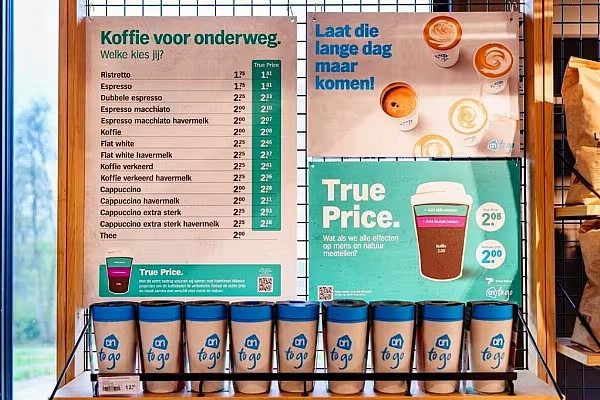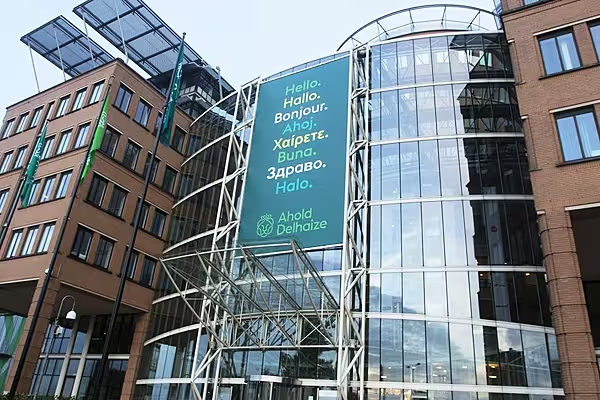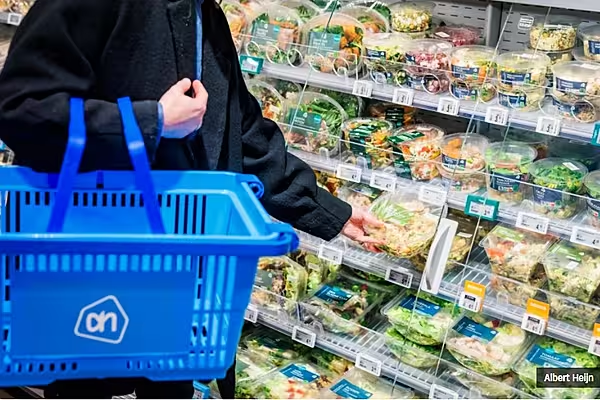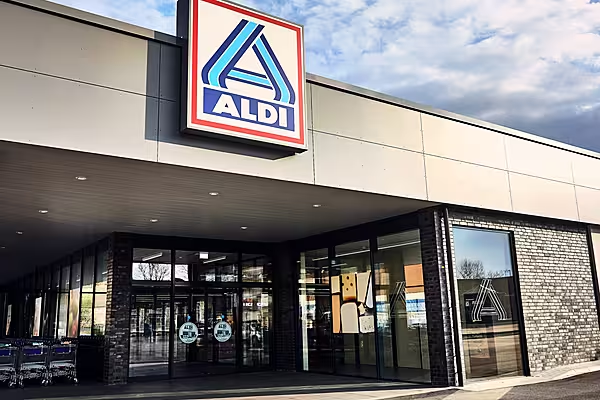Dutch supermarket chain Albert Heijn has launched a ‘True Pricing’ trial in three of its To Go supermarkets, to raise awareness about the hidden costs associated with products.
During the trials, grocery shoppers in Groningen, Wageningen and Zaandam are offered the option of paying the normal price, or the so-called ‘real price.’
The ‘real price’ includes the social and environmental costs throughout the product chain, such as CO2 emissions, consumption of water, use of raw materials and working conditions.
For the experiment, Albert Heijn calculated the 'true price' of coffee, milk and oat milk.
For instance, while the usual price for a black coffee is €2.00, the true price is €2.08, for espresso the difference is €0.06, while for latte it is the highest at €0.36.
For the same coffee with oat milk instead of cow’s milk, the actual price is €0.11 higher.
'True Price’ Model
The ‘true price’ model was developed by Dutch environmental and social justice movement, True Price.
All Albert Heijn's Perla coffee comes from Rainforest Alliance certified coffee plantations.
The Dutch retailer will use the proceeds from the extra amount customers are willing to pay for true price coffee for additional investments in Rainforest Alliance improvement projects in the coffee chain.
As well as raising awareness about social and environmental costs, Albert Heijn aims to help people make more sustainable choices and also learn what customers think.
During 2023, the two partners plan to expand the experiment to multiple locations and broaden it to include more products.
True Price co-founder and executive director, Michel Scholte, said the concept will help make production chains more sustainable ‘so future generations and the most vulnerable people don’t foot the bill.’
Read More: Top 10 Supermarket Retail Chains In The Netherlands
Albert Heijn is not the first large-scale retailer to calculate ‘true prices.’
Back in 2020, German discounter Penny, part of REWE Group, revealed the ‘true prices’ for a selection of private-label products.
In the same year, Amsterdam-based organic supermarket De Aanzet increased its prices to compensate for the hidden costs of bread, fruit and vegetables.
© 2023 European Supermarket Magazine – your source for the latest Retail news. Article by Branislav Pekic. Click subscribe to sign up to ESM: European Supermarket Magazine.














